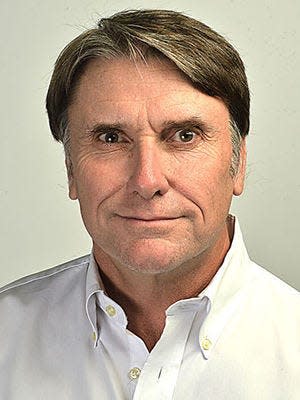Billionaires have amassed colossal power. It's too bad they use it so poorly
Elon Musk is a self-described “absolutist” on freedom of speech — his speech, that is. For everyone else he is more judicious.
He sees no contradiction between his absolutist views on speech and his propensity to silence those he disagrees with on his social-media platform. An “absolutist” on free speech might have been expected to side with three elite college presidents who told Congress that speech on campus should only be restricted as a last resort.
But no. Musk was harshly critical of their position, perhaps because his own mouth had previously gotten him in hot water by amplifying anti-semetic posts. His loud shot at academia might have been what is known in the NFL as a “make-up call.”
The Lindsey Grahamification of Elon Musk — wildly vacillating from one position to another without regard to logic or consistency — would be of no particular interest were it not for his wealth. You can find 10 of his nonsensical type at any corner bar.

There are noticeable parallels between Musk and the old aviator Howard Hughes, who seemed to go further off the rails with every million dollars he earned. No one will be surprised, or should be, if 40 years from now Musk has turned into a paranoid germaphobe.
Yet Musk is, at least, a throwback to the tycoons of old who built empires on useful things such as steel, oil and railroads. The world is a better place with Musk in it.
It’s hard to make the same case for today’s more common class of billionaire, most of whom are little more than super-salesmen, silver spooners, Wall Street parasites or creators of ill-considered technology that does more harm than good..
Unfortunately, as it has become easier for any generic huckster to become a billionaire, the Supreme Court’s Citizens United decision in 2010 has turned these mental children into kingmakers.
Those who fear that democracy will be lost with another Trump presidency seem to miss the point that we have already lost it. Candidates treat people as a bothersome afterthought as they jockey for the approval of a handful of people capable of showering their campaigns with hundreds of millions of dollars.
If the Republican presidential debates have left you unimpressed, remember that you are not the target audience; the candidates are auditioning for favored status among an exclusive club of which you are not a member.
So power has been vested in an infinitely small number of people who have no interest in or understanding of people who do not quaff champagne from a golden chalice.
As Musk has shown, when it comes to rationality, money is not an asset; it is a contaminant. It’s not like an Olympic gold medal, where you either win it or you don’t. There is no predetermined sum of money you can achieve at which point you can relax and stop being so driven to accumulate even more. Making massive amounts of money today is less like a skill than an eating disorder.
The unfortunate paradox is that great wealth isolates and convinces those who have attained it that the skills needed to accumulate vast fortunes are transferable to other walks of life. In truth, an outsized talent in one arena often comes at the cost of being a dismal failure in all others — particularly in governance.
Sam Bankman-Fried discovered that his money did not attract those who could offer wise counsel and a diversity of opinion; it attracted drooling sycophants who told him whatever they thought he wanted to hear in hopes he would open his checkbook.
It is telling that SBF seemed to genuinely want to do good in the world, yet wealth so damaged his moral compass that he had no clue how to do it.
At the other end of the spectrum, Martin “Pharma Bro” Shkreli saw no problem with buying up licenses to life-saving medicines and raising the price 5,000%. When Elizabeth Holmes’ whiz-bang technology didn’t work, her response was to pretend that it did.
Indianapolis Colts owner Jim Irsay recently complained he was profiled by police, who pulled him over for being drug-addled while driving. ““I’m prejudiced against because I’m a rich, white billionaire,” he said. Poor thing.
Billionaires as a class are spectacularly good at making money in their given, often shady, fields of expertise. And they know practically nothing about anything else. Tom Brady was good at football — high finance not so much.
It is small wonder that Will Hurd, the most interesting and qualified GOP presidential candidate, never had a chance largely because he was focused on solutions that would help the many, not the very few.
Maybe it’s for the best. He would have been a poor fit in what Washington has now become.
Tim Rowland is a Herald-Mail columnist.
Will AI be just a source of amusement, or doom the entire planet?
This article originally appeared on The Herald-Mail: Super-rich kingmakers are better at making money than making kings
